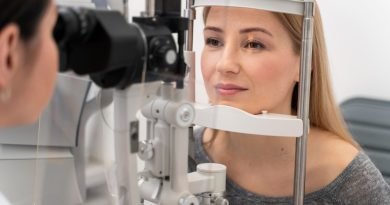How to Spot Signs of Illegal Drug Addiction in Your Loved Ones
Seeing a loved one battling addiction can be a heart-wrenching experience. Finding the help they need starts by recognizing the signs of illegal drug use.
Changes in behavior
Change in behavior is usually the first indication; common examples of this include sudden mood swings, marked irritability, and overall lethargy. It might also involve increased absenteeism from school or social events disappointments, accompanied by an unwillingness to soberly discuss it. If even these subtle signs are proving to be problematic for your beloved ones, it could really mean that it’s time for you to start taking proactive measures in seeking help early on before the problem gets out of hand.
Poor personal hygiene or a disheveled appearance
Discovering that a loved one is struggling with drug addiction can be a heart-wrenching experience, especially when noticing a stark shift in their personal hygiene or general appearance. A disheveled appearance often reveals that someone might be prioritizing drug use over self-care, as they may exhibit a lack of concern for their grooming, clothes, or hygiene.
This neglect may stem from the all-consuming nature of drug addiction, which can overwhelm one’s ability to prioritize basic self-care. It is essential to not only consider this as a sign of addiction but to also approach the person with compassion and sympathy. It is crucial to express concern and offer support, as the individual may be suffering from internal turmoil beyond what is visible on the surface.
Significant weight loss might be another physical indicator
Among the numerous physical indicators observed in addicted individuals, significant weight loss is one that we need to pay close attention to. Rapid and unexplained weight changes can be attributed to a person’s struggle with substance abuse, as drugs can drastically affect metabolism, appetite, and overall health.
Observing this alarming shift in your loved one’s appearance should prompt an open and compassionate conversation about their well-being, highlighting the need for professional help and resources to combat their addiction. Acting with empathy and understanding during these difficult times can provide the necessary support for a person’s journey through recovery and healing.
Being withdrawn and secretive
When your loved one has an addiction, you may notice them becoming isolated from their family and friends, as well as avoiding conversation about their use of drugs. They often try to create new relationships with people they believe can relate to their experiences with drug use. It’s important to recognize these changes and begin talking openly about the issue rather than ignoring it in order to provide support during this difficult time.
Although it may be hard and uncomfortable, asking questions directly will help gain an understanding of the struggles your loved one is facing and show that you are there for them in their time of need.
Addicts may also face financial difficulties
One of the often-overlooked aspects of addiction is the financial burden it imposes on the individual struggling with substance abuse, as well as their friends and family members. As the daily expenses associated with maintaining their dependence snowball, addicts may become increasingly desperate for financial assistance, even resorting to pilfering from those closest to them in their quest for the next fix.
This unfortunate reality only amplifies the need for open communication, empathy, and professional help in addressing drug addiction and its far-reaching implications for the affected individuals and their surrounding support network.
Drug paraphernalia around a loved one’s living space
Such personal items may be subtly concealed or even blatantly displayed, depending on the individual’s level of secrecy and the progression of their addiction. As you search for answers, you might feel a surge of emotions ranging from anger to despair, as well as the overwhelming urge to confront your loved one or seek immediate help.
It is important to understand that addiction can impact people from all walks of life, and addressing the issue with compassion and understanding can make a world of difference. By acknowledging the presence of these unnerving objects, initiating a sincere and empathetic conversation, and providing unwavering support, you can build the foundation for healing and recovery for your loved one.
In conclusion, recognizing the telltale signs of illegal drug addiction in your loved ones is an essential step in providing them with the care and support they need during their struggle with addiction. As a drug crime defense lawyer would attest, being aware of these warning signs can be a lifesaver for your loved one, ensuring they receive the appropriate guidance and resources to overcome their battle with substance abuse. By taking the time to educate yourself about the symptoms of drug addiction, you are actively playing a vital role in improving the quality of life for not just your loved one, but also countless others who may be silently suffering. Together, we can make a difference in the fight against addiction and help create a brighter future for those in need of our assistance.




